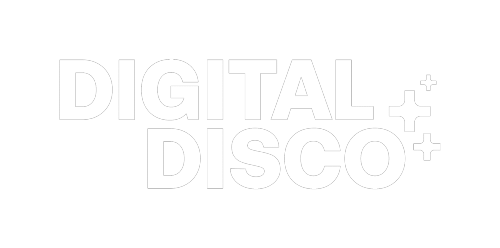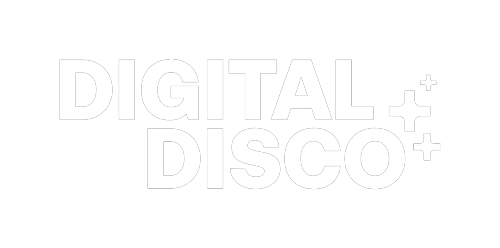15 Common SEO Myths Debunked
SEO is an ever-changing field and the constant algorithm changes and updates in strategies make it one that is prone to myths and half-truths. What may have worked for your SEO strategy in 2009 won’t necessarily work for SEO in 2018, as many SEO strategies may have become outdated since then and just no longer work how they used to.
As a business owner or marketer, it is important to stay up to date on all of these changes, educate yourself and constantly adapt your strategy to suit. This can be really time-consuming, so to help you sort out what is now outdated, what’s important, what works and what is wasted effort, we have looked at the 15 most common SEO myths and debunked them for you.
#1. Link Building Is Dead
This is no one of the most common misconceptions around SEO so that is why we have put it in the number one spot.
In the past, SEO was all about building as many links as possible without looking at the quality of the linking domain. Linking is no longer a numbers game, and the quality of your backlinks is much more important than the quantity. But it is still important, and backlinks are still an important factor in how Google decides what sites to rank on the first page. You just need to focus on the quality of the links you’re obtaining rather than the quantity.
#2. I Must Submit My Site to Google
The idea that you need to submit your website to Google in order to appear in search results is a myth. While it is still standard practice for a new website to submit their sitemap to Google directly, a search engine can still find a website and index it.
#3. It Isn’t Important for My Site to Be HTTPS
Since August 2014 Google has been included site security as a ranking factor, so that little extra ‘s’ on the end of your ‘http’ is actually important for your SEO, as well as for letting your website visitors know that their information is secure. If you’re unsure what all of this means, we wrote a post about it here so you can find out all about how HTTPs affects your website and why you need it.
But, specifically from an SEO perspective, if two websites are otherwise equal, but one is secure and one isn’t the secure website may receive a slight ranking boost to outweigh the other - it’s Google’s way of “rewarding” the site for doing the right thing for its visitors.
#4. Meta Descriptions Are Really Important for SEO
You know that little snippet of text under the link in the search results page - that’s the meta description, and if you don’t write one, Google usually uses the first few sentences of your copy to show in that space instead. Meta descriptions used to be a ranking factor and it used to be important to optimise it for your target keywords, but this hasn’t been the case since 2009. They do play some role in site rank, but not enough to stress about.
These days it is more important to write a meta description for human readers rather than search engine readers because this text can entice people to click on your link and visit your website.
#5. Keyword Optimisation is Key
Keyword optimisation - and specifically focusing on exact keyword matches - used to be all-important for SEO and site rank, but nowadays Google is much better at recognising context and relevance so you don’t need to stuff your content full of exact keyword matches - synonyms, related phrases and long-tail variations also work.
It’s now much more important to write naturally for your readers and have your keywords fit in with the flow of your content. The rise of mobile and voice searches has meant that search queries have become more conversational, and Google has been focused on understanding these better and matching it with the right content.
#6. My Homepage Needs a Lot of Content
There has been a recent shift towards longer, more in-depth content that offers more value (and targets multiple keywords around the same topic), rather than lots of pieces of content each focusing on one keyword. But that doesn’t mean your homepage needs to have 3,000 words on it to match.
Your homepage is the gateway to your other content - visitors don’t come to your homepage expecting to read paragraph after paragraph of content covering every topic. They come to it expecting to be able to navigate their way to the content they are after, so your homepage should focus on clarifying who you are, where you’re located, what you do and where to go to next to find the content the user is looking for.
#7. The More Pages I Have, The Better
More pages to rank means more traffic right? Unfortunately not.
Creating more content just to have more pages isn’t going to cut it anymore, you have to focus on quality too! There are plenty of websites out there that rank better than websites with more pages because the quality of the content on the pages they do have is better.
Be aware that not everything you publish gets indexed, and just because a page does get indexed it doesn’t mean it will send you more traffic and leads. You need to focus on creating content that adds value - their mere existence won’t help your SEO.
#8. Local SEO is the Same as National SEO
Incorrect.
If you are a local business and want people around you to be able to find you online, visit you, and buy from you, then you need a local SEO strategy that differs to a national or global strategy. Google has worked on algorithm updates that focus specifically on local SEO, and things like a verified Google Business listing, social media and map locations all contribute to a successful local SEO campaign.
#9. I Don’t Need to Optimise Images
Again, not true. On-page SEO is really important, and part of this is optimising your images for search. Search engines can’t see images, so you need to tell them what they are using alt text and image file names. If you don’t you’re losing out on a huge opportunity to be as visible as you can online.
#10. I Don’t Need a Mobile Optimisation Strategy
In 2016 mobile internet use overtook desktop use, so a mobile optimisation strategy is more important than it has ever been. The mobile-friendliness of your website is definitely a ranking factor - search engines reward sites that are mobile-friendly and penalises those that aren’t.
You want your website to have a responsive design, which means that it automatically changes the layout to suit the device the user is on. If your website hasn’t been updated recently then it is unlikely to be responsive and you need a strategy to modernise your site.
#11. IT Can Do My SEO
Because there is some level of technical expertise required for SEO, there is a misconception that the IT department could handle all SEO work, and this just isn’t the case. You may need some assistance from a technical person or a web designer when it comes to optimising your website, but they can’t handle all aspects of SEO and leaving your entire SEO strategy to the IT team will severely hamper the success of your campaign.
#12. Social Activity Doesn’t Affect SEO
While search engines may not directly count Facebook likes or Tweets directly towards page rank, social activity can still have a very important effect on your SEO by means of search engine discovery and content distribution.
Successful social activity will put your content in front of the right people, and this is likely to lead to more links and sharing of that content, which will boost your SEO efforts.
#13. I’ll Be Penalised for Duplicate Content
Duplicate content won’t result in an outright penalty, but it also won’t do you any favours. Search engines will ignore and disregard any duplicate content so you just won’t rank for it. If you’re not ranking, you won’t get any traffic from that content, so it's a wasted opportunity.
Quality, unique content has the opportunity to rank and drive traffic. Duplicate content doesn’t.
#14. SEO Is a Once-Off
There is, unfortunately, no “set and forget” when it comes to an SEO strategy. It is a task that requires constant upkeep, staying up to date with changes, strategy adaptations and fresh content. You can never “finish” SEO on your site.
#15. I’ll See Results Quickly
Now, sometimes you can get quick results with SEO, especially if you’re targeting a relatively non-competitive keyword, but it is a misconception to think you’ll automatically rank in the top 3 spots on the first page, see heaps of traffic and get tons of conversions. SEO is typically a long-term strategy and you need to set your expectations as such. If you get told otherwise, you’re being sold up the river as no one can guarantee rankings, traffic or results with SEO.
The SEO landscape changes so often and so quickly so these are by no means all of the myths and misconceptions circulating around SEO in 2018. And if you’re struggling to keep up with all of the changes and adapt your SEO strategy, write unique and relevant content, or optimise your website in the right way, don’t forget we’re here to help! We offer flexible SEO packages to suit your needs, and we’re here to help you get your website ranking. Just get in touch today - your first consultation is free!

